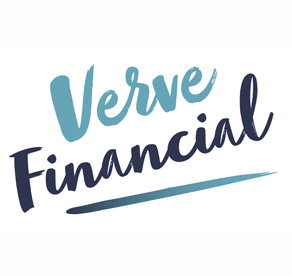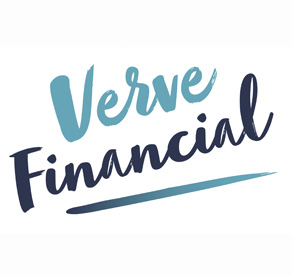Self Employed Mortgage First Time Buyer
- We are a fee free mortgage brokerage. We do not charge our customers for any advice we are purely paid by the lender on completion.
- We work with dozens of lenders including the high street banks and can compare their deals for you, always with your best interest at heart.
- We take away the stress and uncertainty of applying directly with a lender who may not have the most suitable deal for you.
Home / Mortgages / First Time Buyers / Self Employed Mortg...
Speak to an expert
Gary has been providing advice to clients on their mortgage needs for over 10 years. He has extensive experience in providing advice and recommendation on all types of mortgage including high net worth purchases, new build purchases, self-employed, contractor and adverse credit. Clients working with Gary can expect a straight-forward honest and highly personalised service.
Gary Boakes
Director and Mortgage advisor

Body
Can I get a mortgage as someone who is self-employed and a First Time Buyer?
Self-employed people worry a bit too much about it being more difficult to get a mortgage. There are just different rules for self-employed people and people who are employed – that’s all it is. We just need to look at the criteria for the self-employed – but there’s nothing negative against self-employment or being a First Time Buyer that can cause any problems. If you’re a First Time Buyer who’s self-employed, you can still get a mortgage the exact same way as one who’s employed – you just need to fit the criteria.
How does getting a mortgage as someone who is self-employed and a First Time Buyer work? Is it difficult?
No. The big difference is that when you’re employed you get a monthly payslip. You’ve got a permanent position and any changes to your salary go through quickly. When you’re self-employed, it’s all based on your historical income. Lenders will look at maybe the last year or the last two years. It can become a little more difficult if you’ve had a big boost in your income halfway through the year. It isn’t until you do your tax return that your lender will take that into account. So there are some downsides to being self-employed in that respect, but it’s not more difficult. It’s just having the evidence – which will be your tax returns, as proof of what you’ve earned. Generally we will get that through your accountant, or if you’ve done it online yourself it will be on your HMRC gateway. Like anyone else, we will look at your income, your affordability, your credit score – it’s no different from someone who is employed.
We offer fee free mortgage advice.
We do not charge our customers for any mortgage advice we are purely paid by the lender on completion.

How many years do you have to be self-employed to get a mortgage as a First Time Buyer?
People come to us expecting to need three years’ accounts – and actually most lenders will take two years. We do have some lenders now that will take one year’s accounts. I think that’s where people think that being self-employed is harder because you need longevity. But we’ve done plenty of mortgages where someone’s only had their business for a year.
How much can I borrow for a mortgage if I’m self-employed and a First Time Buyer?
What you earn is what you earn. Regardless of whether you’re employed or self-employed, you will have a gross income that you pay tax on. It’ll be the net profit – your taxable income for the self-employed – that we will look at. It will then be based on how much you earn, your expenditure and your circumstances and that’s no different from someone that’s employed. There’s not much difference between the two. It’s just about what the lender will see as your income.
How is a mortgage calculated for a self employed First Time Buyer in the UK?
There are differences in how a lender looks at self-employed income. The majority of lenders will take an average of the last two years – but they make exceptions if the latest year is lower. In that case, they may only go off that year rather than the average. We also have some lenders that will just take the latest year if turnover has increased, which can be really positive. We then take into account your self-employment structure. You may well be under a limited company so you could be getting a salary and dividends. Again, there are different ways for lenders to look at those. Lenders will have different criteria for self-employed people so it’s really important to speak to a broker. If you’re employed you can just go onto a bank’s website, type in your employed income and get an answer. However, if you’re self-employed, what figure are you going to use? Is it the latest year? Is it an average? That can be the complication. So the figures you put into that calculator may well be wrong for that lender. Talking to a broker will take all that uncertainty away.
We work with dozens of lenders including the high street banks and can compare their deals for you, always with your best interest at heart.

What documents do I need to apply for a mortgage as a self-employed First Time Buyer?
We will take your tax computations or SA302. That’s the document that is generated once you submit your personal tax returns via HMRC. It will outline your taxable income.
Along with that, you will get something called a tax year overview. Lenders like to see both of those to see you have been paying your tax correctly and on time.
If you’re a limited company, we can do it via your personal tax return, or we may well ask for your accounts as well. We will also need business bank statements to see the income going in. Depending how long ago you did your accounts or personal tax returns, lenders may want to see that your business has still been transacting well over the last couple of months.
What if I have bad credit as someone who is self-employed and looking at my first mortgage?
Bad credit is something that we always need to look at. It’s basically assessing what type of bad credit it is and how long it’s been going on for. Is it just a couple of small missed payments or is there more to it, like CCJs or IVAs?
There’s a complete array of bad credit types, and lenders all have different criteria around these. Some will be okay with a late or missed payment, and they may be happy with a CCJ if it’s below a certain figure.
Bad credit may well require a larger deposit, certainly if you’ve had a large CCJ in the past. But this is the same if you’re employed or self-employed – there’s no difference.
How can I improve my chances of getting a mortgage as a self-employed First Time Buyer?
Preparation is important. Have the documents you need available. It’s no different from me asking someone for payslips. They may well have to go on to the system at work to get those payslips or try and find them on emails.
Getting your tax computations is as simple as logging on to HMRC or dropping an email to your accountant. We need to know what your income is to be able to work out your affordability.
An important thing to remember is that your personal tax returns have to be done by January 31st. With the majority of lenders, by October/November they will require you to have accounts from the most recent tax year. In October 2023, for example, your 2022 accounts are 18 months out of date – that’s quite a long time not to know how your business has done.
So, certainly at this time of year you need to get those accounts sorted, even though you may not officially have to do them until January.
Get in touch
We take away the stress and uncertainty of applying directly with a lender who may not have the most suitable deal for you.
How do I apply for a mortgage as a self-employed First Time Buyer?
When you’re self-employed a mortgage broker really comes into their own. We can work out what your optimal income is for specific lenders.
Certain lenders will take an average of the last two years, so if you’ve done £20,000 last year and £40,000 this year, they will take your income as £30,000. But other lenders will let you take your income at £40,000.
That’s a massive difference – and vice versa, if your income has fallen from £40,000 to £20,000 it’s best to go for the average.
We identify the income to use for a lender and which lenders to go to. Some are really good for the self-employed and it’s a focus area for them – others don’t feel it’s so important and their criteria may not be as good.
I’d certainly encourage self-employed people to speak to a broker. We can be so helpful at every step towards buying your first home.
Warning Text

YOUR HOME MAY BE REPOSSESSED IF YOU DO NOT KEEP UP WITH YOUR MORTGAGE REPAYMENTS.
Every episode is a gateway to new knowledge and endless inspiration!
Related podcasts
-


-


Self-employed Mortgage First Time Buyer
Gary Boakes talk about the self-employed mortgage for first time buyers.
LISTEN NOW -


Fixed-term employment contract part 2
All about fixed-term employment contract mortgages part 2
LISTEN NOW -


Unlock the answers you seek- the best solutions often start with the right questions!
FAQs
-
Where are meetings held?
Meetings can be held virtually, via Zoom or Microsoft Teams. You can visit us in our Salisbury office, or we can travel to your home or place of work.
-
Do I have to sign up to your services at an initial meeting?
There is no obligation to sign up at the initial meeting.
-
Do I have to pay for an initial meeting?
No, the initial meeting is completely free.




